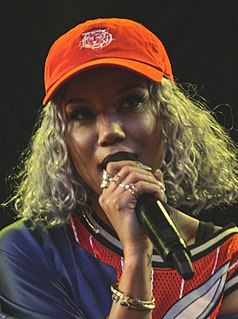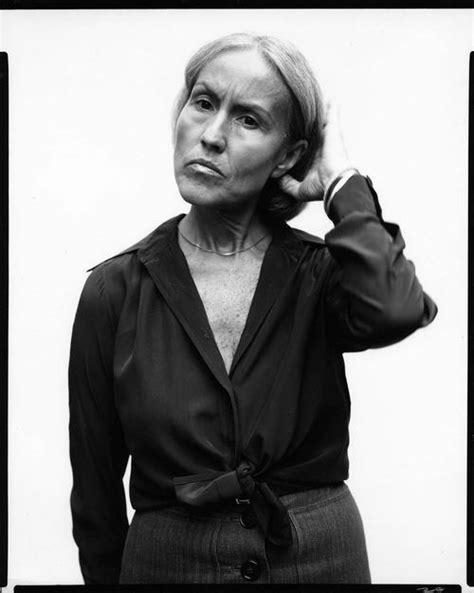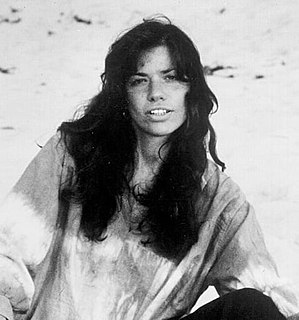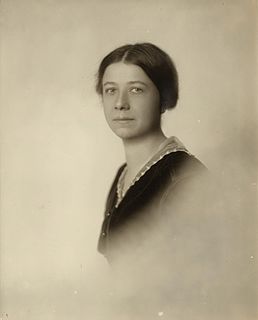A Quote by Jhene Aiko
I never saw a distinction between a man and a woman. My grandparents and my mother were great examples of men and women, and they taught me equality. So I would fight with boys and wear my cousin's clothes. I would do whatever I wanted, and that's where I still stand today.
Related Quotes
I always took a great interest in my clothes. My sister, who was 13 months older, and I always dressed alike, but as I got a little bit older, I didn't like that because I wanted to dress differently. So our mother would put Patty in blue and Polly in pink, or we would wear complementary colors, but the shapes we were wearing were always the same, and I was very interested in that. I also took great interest in my dolls and their clothes.
When I look in the mirror I see the woman I knew I wanted to be as a child. When I was a young girl, I had a vision of the woman I wanted to be. And I often reached out to women of color in America for inspiration. My mother would regularly buy Essence and Ebony. I would look at those magazines filled with images of professional, intelligent women of color who knew who they were, who enjoyed who they were, and who were surrounded by other people who enjoyed who they were. When I look in the mirror, I'm really glad that that's what I see today, but it took awhile to get here.
I could fight with the living but I could not fight the dead. If there was some woman in London that Maxim loved, someone he wrote to, visited, dined with, slept with, I could fight her. We would stand on common ground. I should not be afraid. Anger and jealousy were things that could be conquered. One day the woman would grow old or tired or different, and Maxim would not love her anymore. But Rebecca would never grow old. Rebecca would always be the same. And she and I could not fight. She was to strong for me.
I started to draw and design clothes that I couldn't find, because everything was all luxury, fashion clothes or very straight. So I mixed all of that together: Who says I can't put a man in a skirt? Who says that a man can't wear lace? Who says that men can't wear Swarovski? Who says that men can't wear makeup? You know what I'm like; for me, straight, gay, women, men, trans, we're all the same. I don't see difference.
All men are created equal and all women are created equal as well, but [equality] seems much clearer when it comes to race issues. In the realms of man/woman, man/man, woman/woman love, it seems all up for grabs now. We are exploring so much, but I think we gotta go for the fight for all equality first.
The woman's bill of rights is, unhappily, long overdue. It should have run along with the rights of man in the eighteenth century. Its drag as to time of official proclamation is a drag as to social vision. And even if equal rights were now written into the law of our land, it would be so inadequate today as a means to food, clothing and shelter for woman at large that what they would still be enjoying would be equality in disaster rather than in realistic privilege.
They wanted the real mother, the blood mother, the great womb, mother of fierce compassion, a woman large enough to hold all the pain, to carry it away. What we needed was someone who bled...mother's big enough, wide enough for us to hide in...mother's who would breathe for us when we could not breathe anymore, who would fight for us, who would kill for us, die for us.
But while I'd be their daughter, while I'd eat the roast and come home from dates and wash the dishes, I would also be myself. I would love my mother, but I'd never want to be her again. I would never be what someone else wanted me to be. I would never laugh at a joke I didn't think was funny. I would never tell another lie. I would be the truth-teller, starting today. That would be tough. But I was tougher.
I've never been interested in dressing one woman. What's interested me was to have a philosophy. It hasn't been important to put a woman in a blue dress. I wanted to dress women who wanted to look at themselves. To stand out. To be women who were not part of the crowd. A woman who fights and advances.



































